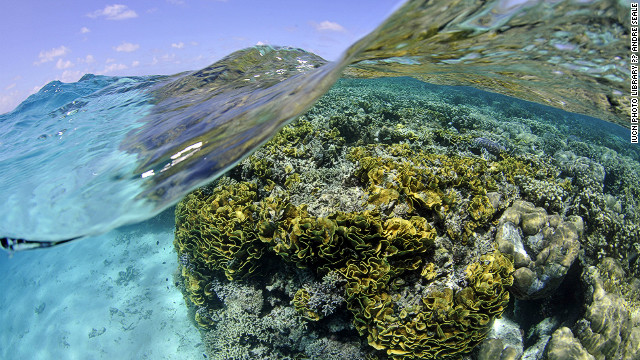Ecosystems Services
There are a variety of reasons why humans should care about Coral Reefs. They provide services not available anywhere else in the world, and they are home to many organisms that cannot live without them.
Economic
Renewable resources are the major service offered by coral reefs. Humans collect a variety of seafood products such as fish, mussels, crabs, sea cucumbers, and seaweeds. They are many reef fisheries that generate income solely off of fishing near the reefs. More advanced nations demand more and more of these seafoods, and poorer nations that need to exploit these locations to survive and sell.
 |
| http://img.docstoccdn.com/thumb/orig/2366291.png |
Mining of reefs are a source of building materials for some nations. It can be used for lime, mortar, and cement. This is a bigger issue in poor countries that have to rely on mining reefs to be able to build and cannot rely on woods or metal.
Human Economic services from the reefs support more than half the countries in the world. The coral reef trade is a multi-billion dollar industry and millions of people depend on them for their jobs (Coral Reef Aliance 2014). Without sustainability all these jobs could be lost, and there would be a huge hit to the economy in general.
Social/Cultural services are recreational activities offered by coral reefs. The income generated from coral reefs through tourism is huge, especially to the areas where coral reefs are located. They are generally in warmer areas, and poorer areas try to take advantage of the tourism market. In 1990 in the Caribbean alone, America had an income of $8,900,000,000 and provided many jobs for those in the areas (Moberg et al. 1999).
Protection
Physical structure services are the physical protection of shores from waves and storms saving a ton of erosion damage. It was reported in 1996 that reefs saved America about $1,000,000 for each km of coastline (Environmental Protection 2009).
 |
| http://i2.cdn.turner.com/cnn/dam/assets/120619093035-iucn-red-list-coral-wave-horizontal-gallery.jpg |
Biodiversity
 |
| http://marinebio.org/i/biodiversity2.jpg |
Biodiversity services from the coral reefs are astronomical. There are many species present in the coral reef. more than 1 million diverse aquatic species, and thousands of fish species are present in reefs (Coral Reef Aliance 2014). Currently there are many organisms living in the Coral Reef that could possibly be fished and used for income.

No comments:
Post a Comment